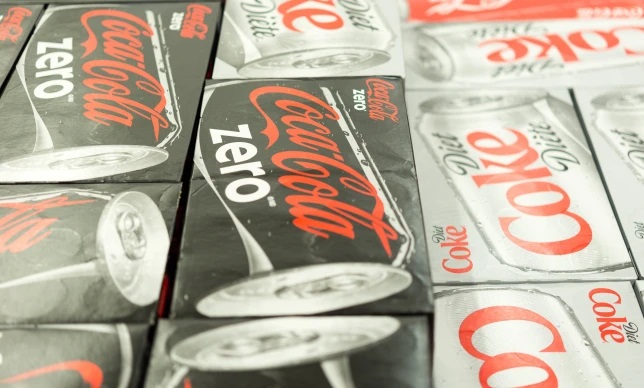The World Health Organisation (WHO) is set to declare an artificial sweetener as a possible cause of cancer.
Aspartame is used in popular products like Coca-Cola’s diet drinks and Mars Extra chewing gum.
But next month, the WHO is set to list it as ‘possibly carcinogenic to humans’, according to two sources with knowledge of the process.
The ruling won’t take into account how much aspartame someone can consume safely – that advice comes separately from a WHO expert committee on food additives.
The organisation’s committee on additives is reviewing aspartame use this year, and will announce its findings on July 14, the same day the decision on whether to declare it as carcinogenic is published.
A spokesman for the International Agency for Research on Cancer (IARC), the WHO’s dedicated cancer research arm which has been looking into the sweetener, said its findings were ‘confidential’ until July.
The additives committee ‘conducts risk assessment, which determines the probability of a specific type of harm to occur under certain conditions and levels of exposure’.
Since 1981,the additives committee has said aspartame is safe to consume within daily limits.


For example, an adult weighing 60 kg (132 pounds) would have to drink between 12 and 36 cans of diet soda – depending on the amount of aspartame in the beverage – every day to be at risk.
This view has been widely shared by national regulators, including in the United States and Europe.
The IARC’s rulings can have a huge impact – but have also sparked criticism over warnings about hard-to-avoid substances and situations.
It previously classed working overnight and eating red meat as ‘probably cancer-causing’, and using mobile phones as ‘possibly cancer-causing’.
The International Sweeteners Association has criticised the IARC’s decision-making, saying: ‘IARC is not a food safety body and their review of aspartame is not scientifically comprehensive and is based heavily on widely discredited research.’
The International Council of Beverages Associations’ executive director Kate Loatman said public health authorities should be ‘deeply concerned’ by the ‘leaked opinion’, and also warned it ‘could needlessly mislead consumers into consuming more sugar rather than choosing safe no- and low-sugar options’.
Sources close to the IARC say classing aspartame as a possible carcinogen should motivate more research into the sweetener.
Last month the WHO advised people not to use non-sugar sweeteners while attempting to lose weight, causing uproar in the food industry.
Latest Stories
-
Center for Learning and Childhood Development Director Dr Kwame Sakyi honoured at Ghana Philanthropy Awards
9 hours -
Asantehene receives 28 looted artefacts
9 hours -
CAF WCL 2024: Ghana’s Thelma Baffour wins title with TP Mazembe
10 hours -
Benjamin Boakye slams politicisation of energy sector issues and ECG’s inefficiencies
10 hours -
Erastus Asare Donkor and Dr Neta Parsram win big at 10th Mining Industry Awards
11 hours -
Government is “suppressing information” about power sector challenges – IES Director
11 hours -
Majority of our debts caused by forex shortfall – ECG Boss
11 hours -
Pan-African Savings and Loans supports Ghana Blind Union with boreholes
12 hours -
Bole-Bamboi MP Yussif Sulemana donates to artisans and Bole SHS
12 hours -
Top up your credit to avoid potential disruption – ECG to Nuri meter customers
12 hours -
Dutch & Co wins 2024 Entrepreneur of the Year Award
12 hours -
We’ll cut down imports and boost consumption of local rice and other products – Mahama
15 hours -
Prof Opoku-Agyemang donates to Tamale orphanage to mark her birthday
16 hours -
Don’t call re-painted old schools brand new infrastructure – Prof Opoku-Agyemang tells gov’t
16 hours -
Sunon Asogli plant will be back on stream in a few weeks – ECG
16 hours

